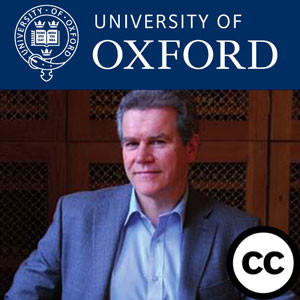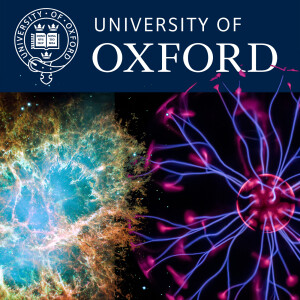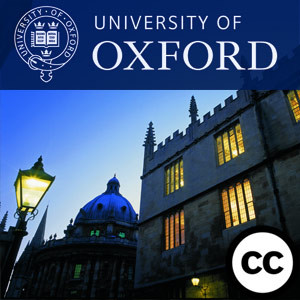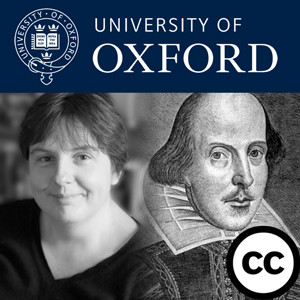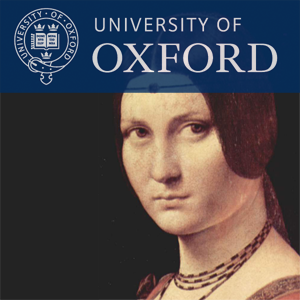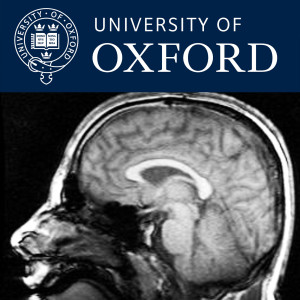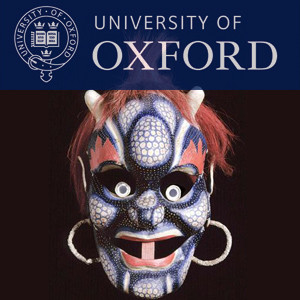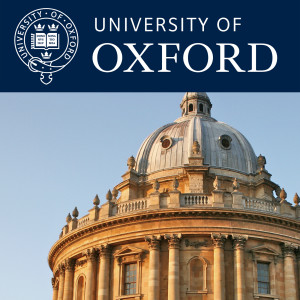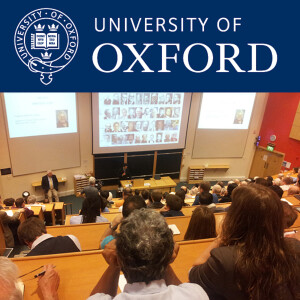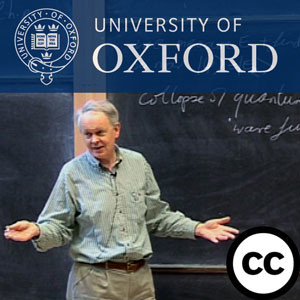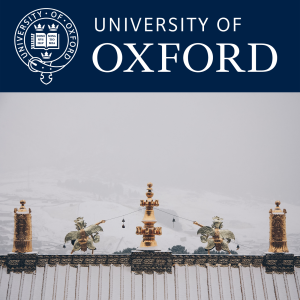

Tibetan Graduate Studies Seminar
http://mediapub.it.ox.ac.uk/feeds/144224/audio.xmlEpisode List

Asian Territorial Deity Cosmologies as Vehicles for the Transmission of Buddhadharma (Oxford Treasure Seminar Series)
Robert Mayer's analysis of Guru Chowang's enduring connection between territorial deity cosmologies and the preservation of hidden teachings in Tibetan Buddhism Academic scholars are accustomed to understanding gter as sacred texts often associated with Padmasambhava, within a cult deriving historically from ancient imperial burials. Yet the great 13th-century Padmasambhava devotee Guru Chowang primarily understood gter, by definition, within a mundane framework, barely mentioning Padmasambhava at first, and with not a word about ancient tombs. Even more striking about Chowang’s understandings of gter are their widespread and continuing persistence, as suggested by recent ethnographies of Tibet’s territorial deity cosmologies. For rather than place ancient tombs at the centre of his analysis, Chowang looked to popular terrestrial deity cosmologies to provide a vehicle for Padmasambhava’s hidden teachings. This graft of Indian Buddhist notions of transcendent, spiritual, transmission onto mundane Tibetan territorial deity cosmologies still thrives to this day. Indeed, Tibetan scholars understood Indian Buddhism previously to have made a similar use of India’s nāga and yakṣa territorial deity cosmologies for the concealment and rediscovery of Buddhist teachings.

Nāgas and relic treasures in the Mahāvaṃsa (Oxford Treasure Seminar Series)
Kristin Scheible uncovers the hidden role of nāgas in defining Buddhist treasures and explores their surprising significance in safeguarding sacred relics through early texts Much of the literature on nāgas in Indian Buddhist monasticism has focused on their rain-making and monastery-protecting duties. However, early Buddhist texts are full of narratives about nāgas serving the Buddha, dharma, and saṅgha by guarding in their subterranean palaces a variety of specifically Buddhist treasures. For example, nāgas played exactly this role in an important Pāli Buddhist text from Nāgārjuna’s roughly contemporaneous and neighbouring Sri Lanka, the Dīpavaṃsa. The fifth century Mahāvaṃsa enhances the depiction of nāgas as hoarders and valuers of treasures. Scheible argues that nāgas were not background characters in the Pāli Buddhist imaginaire around Nāgārjuna’s time; by stealing, hoarding, and venerating various types of sacred relics of the Buddha in their nāgaloka they in fact define what a treasure is.

Recalibrating the Perspective on Tibetan and Himalayan History: Identity- and Nation-Building in Bhutan
In this talk, Dr. Dagmar Schwerk presents the work-in-progress of her current research project, an investigation into identity- and nation-building in eighteenth-century Bhutan In this talk, Dr. Dagmar Schwerk presents the work-in-progress of her current research project, an investigation into identity- and nation-building in eighteenth-century Bhutan. Focusing on the identity and agency of Bhutanese Buddhist masters as important intermediaries in Bhutan’s entangled and turbulent history with Tibet, her research is centred around the joint Bhutanese-Tibetan travels of the Ninth rJe-mKhan-po of the Bhutanese ’Brug-pa bKa’-brgyud school, Shākya Rin-chen (1710–59) to Tibet under the supervision of the Second Dre’u-lhas-sprul-sku Grub-dbang Kun-dga’-mi-’gyur-rdo-rje (1721–69). Dr. Schwerk’s interdisciplinary research design combines historical-philological methods by analyzing a thus far untranslated corpus of diverse Bhutanese and Tibetan primary sources, such as legal codes and historiographical works; life-writings; and doctrinal works, with a theoretical framework from religious studies focusing on identity and social differentiation between the societal spheres of religion, politics, and law. As a result, this approach enables us to understand and describe the decisive fourfold and multidimensional relationship between religious-doctrinal identity, socio-cultural identity, identity policies, and nation-building in Bhutan at that time. Dr. Schwerk will introduce examples and relevant aspects of her methodologies and textual sources. More broadly speaking, her research aims to demonstrate how the eighteenth century represents a critical juncture in Bhutanese religious and political history that enables a novel understanding of Bhutan today, particularly of its Buddhism-induced, sustainable development model of Gross National Happiness (GNH). Moreover, to elicit a fruitful discussion and to also invite questions of a comparative and/or theoretical character with scholars and students from various backgrounds present at the TGSS, Dr. Schwerk will place her case study of Bhutan as a unique example of a non-Western development path in the broader context of Tibetan and Himalayan history and research.

‘Treasures’ (gter ma) and treasure-finders in Yungdrung Bön: a Tibetan tradition spanning a thousand years (Oxford Treasure Seminar Series)
This talk presents an outline of the Yungdrung Bön ’Treasure’ tradition The Tibetan Bön religion, often called Yungdrung (‘Eternal’) Bön by its adherents, arose in Central Tibet at the same time as the ‘Latter Propagation’ (phyi dar) of Buddhism, i.e. in the 10th-11th century CE. In fact, it shares many traits with the Latter Propagation, and may be viewed as part of a broader socio-religious movement in Tibet at the time. An important element, shared by both these religions, is the appearance of ’Treasures’, texts (and to some extent objects) considered by their respective adherents to have been hidden in former centuries at a time when the religion was persecuted or when the people of Tibet were not considered sufficiently spiritually mature to receive the texts. The Treasures are believed to have been brought to light by ’Treasure discoverers’ (gter ston), particularly gifted or divinely chosen individuals who passed them on to their circle of disciples or patrons. This talk will present an outline of the Yungdrung Bön ’Treasure’ tradition, a tradition which is still alive, thus spanning more than a thousand years. From origins which are different compared to those of Buddhist ’Treasures’, it has developed and diversified over the centuries, ultimately becoming the most significant source of Yungdrung Bön canonical scriptures.

Yoginīs, Revelation, and Hidden Knowledge in Tantric Śaivism (Oxford Treasure Seminar Series)
This presentation examines Śākta transformations of conceptions of revelation and the transmission of esoteric knowledge in Mantramārga Śaivism This presentation examines Śākta transformations of conceptions of revelation and the transmission of esoteric knowledge in Mantramārga Śaivism. In particular, the presentation focuses on representations of Yoginīs, both divine and human, as sources of power or hidden knowledge, as guardians of esoteric teachings, and as agents of revelation.
You may also like
Create Your Podcast In Minutes
- Full-featured podcast site
- Unlimited storage and bandwidth
- Comprehensive podcast stats
- Distribute to Apple Podcasts, Spotify, and more
- Make money with your podcast
